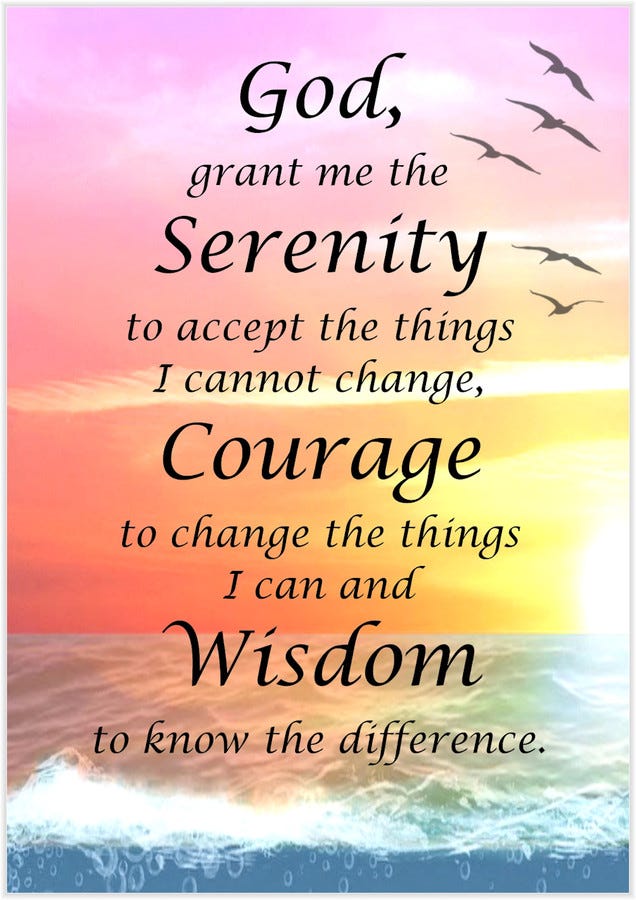Maybe you’ve heard that Spin Doctors song informing listeners that they’ve ‘got’ (not ought) to believe in something. For the past ten years or so, I’ve believed in something, but I’m not sure what to call it, or if it even is an it. God would be one way to describe the ‘somethingness’ but usually insufficient, too indefinite both for others and myself. So I’ve been wandering around exploring different religions and beliefs, on a quest to find the ‘right’ one that might lead me in the ‘right’ direction. Well, that’s a tough thing to do and I’m not here to say I found the answer, instead I’m here to say I think I have been asking the wrong question.
I grew up Greek Orthodox and the sensory experience (icons, candles, incense, bread) has stuck with me, despite turning away from the Church in my youth. However, I don’t think I was able to understand what spiritual belief meant, let alone hold any of my own at that stage of my life. I first became interested in a power greater than myself at the age of 28 after walking into the rooms of a twelve step recovery program. While these programs never endorse or suggest any particular religion, they are built on the necessity of belief in a higher power. I was willing to explore the idea, but being a perfectionist, I wanted to do it perfectly and thought finding the right religion was my task. After a few years exploring new age spirituality, Zen Buddhism and various Christian and Orthodox denominations, I joined the Catholic Church, in admiration of their social justice work and focus on serving the marginalized. A few years later, I became Baha’i, choosing a religion that embraces all manifestations of God and teaches love and unity above all else while actively working to build more vibrant communities. Yet, I still didn’t feel that I had found ‘the one’ religion that was universally ‘right.’ Every option had appealing aspects, but I never felt that taking part in their practices and activities led me toward the spiritual wellbeing I sought.
My problem was that I was treating religion like shopping for chocolates: focused solely on finding which one best suited me and thinking that my spiritual growth depended upon making the correct choice. Every religion had aspects I didn’t like and I used these along with the fact I did not feel they brought me closer to God to convince myself that I had not yet found the right one for me.
Recently, a friend pointed out how unwilling I have been in the past to turn my will over to God. I was happy to give God my problems along with the solutions I sought, but how was my version of God a higher power if I was telling it what to do? My friend was spiritual, but not affiliated with any particular religion and after reflecting on their comments I started to see that it didn’t matter so much which (if any) religion I wanted to subscribe to; doing the spiritual work was what mattered most. After all, the act of turning one’s will over to God is common among most religions.
I’ve always struggled to comprehend what exactly turning it over and God’s will mean on a practical level. I’ve often thought that when faced with a decision, an adept follower of God would have the skills to discern the choice that God wanted them to make, as if life was a big maze and God’s will led one to finding the hidden cheese.
Indeed, some religious practices emphasize the importance of discerning God’s will when making decisions. The Greek Orthodox Church says that finding the cheese is something most people can’t do on their own and requires the guidance of a Spiritual Father. Ignatian Spirituality teaches that discernment can be developed individually and with enough practice we will be able to find the cheese without help from others, but a Spiritual Director can help us grow in our ability to discern. I’m not sure what the Baha’i teaching on this is, but I know that turning our will over to God is a key theme of many Baha’i writings and prayers. Some Christians ask themselves ‘what would Jesus do?’
What has helped me recently and led to a shift in my perspective on God’s will is to keep it simple: God gave us free will. When we choose to do something, that’s our choice, our action, our will. God’s will is the result of billions of human actions taking place constantly and globally. This is everything that happens in our lives and around us, the things out of our control. Accepting God’s will is accepting life, accepting all the things out of our control rather than trying to fight, flee or change them. Life’s not a maze. This simple perspective is easy for me to understand, and eliminates the importance of developing good guesswork at finding imaginary cheese. God gave us experts, science, friends, family, reason, experience, logic, critical thinking and so many gifts to aid us in making good decisions - but ultimately it’s in our hands, because God gave us free will. At least, that’s the way I see things at the moment.
So I need not fret over whether my choice to travel to France was God’s will or not, it was mine and if I had not gone to France that would have been my will too. Now, arriving and all the things that have been out of my control since, those have been God’s will. The pathway for my spiritual growth is summed up best in the Serenity Prayer:
Since taking this approach, I’m finally feeling more of God’s presence in my life and it’s happened without having to commit to a particular religion. Maybe I’m a heretical ‘spiritual but not religious’ or perhaps just a wayward Christian, but more importantly, I’m no longer worried about finding the right spiritual chocolate or hidden cheese. I don’t think either are as important as I used to. For me, believing is a necessary but insufficient condition for spiritual growth. As the great Marshawn Lynch says: “I’m just ‘bout that action, boss.â€



